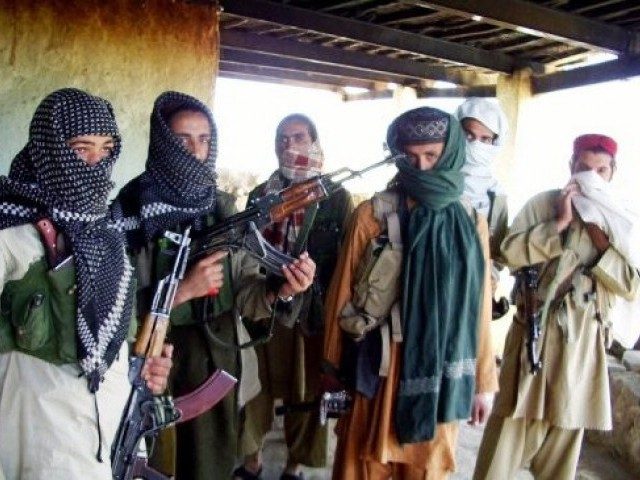Many jihadists organizations who plan attacks in Pakistan to target U.S. military troops and their allies in neighboring Afghanistan are still enjoying sanctuary in the country despite Islamabad’s claims that it has eradicated all “organized” terror havens within its borders, Breitbart News has learned.
U.S. President Donald Trump suspended nearly $2 billion in security aid to Pakistan over Islamabad’s reluctance to take decisive action against several jihadist groups, namely the Afghan Taliban and its Haqqani Network, the latter of which the Pentagon believes poses the top threat against American troops in the region.
Resuming aid is contingent upon Pakistan taking action against the aforementioned jihadist groups.
Late last week, Maj. Gen. Asif Ghafoor, the head of the Pakistan military’s media wing, told Gulf News that “there are no more organized sanctuaries, for elimination” on Pakistani soil.
“Of [the] remaining disorganized scanty residual presence of militants, Operation Raddul Fasaad, a largely intelligence-based operation is in progress” to finish the job, he continued.
Breitbart News asked the U.S.-NATO mission in Afghanistan, dubbed Resolute Support (RS), about Gen. Ghafoor’s assertions that Islamabad has cleared Pakistan of all jihadi sanctuaries.
Asked whether or not Pakistan had extinguished all terror sanctuaries from its territory, American Capt. Tom Gresback, a spokesman for the international mission in Afghanistan dubbed Resolute Support (RS), told Breitbart News via email that Pakistan continues to assist the Taliban and other jihadists groups.
Echoing other U.S. officials, the American captain explained:
[President Trump] has explicitly called for Pakistan to eliminate the sanctuary and support that terrorist groups continue to receive inside its borders. Pakistan has made progress in pursuing terrorists in the border region, through Operation Zarb-e-Azb and other measures. But this has not entirely stopped the flow of terrorists crossing into Afghanistan. There are many still living in Pakistan.
Consistent with comments from American Gen. John Nicholson, the top commander of American and NATO forces in Afghanistan, that Iran, Russia, and Pakistan lend support to the Taliban, Capt. Gresback stressed that “external enablement” keeps the narco-terrorist group alive.
U.S.-backed President Ashraf Ghani has offered the Taliban an “unprecedented” peace offer—a ceasefire and official political power, but except for a small group, the organization has declined and chooses to keep fighting.
Despite Ghani’s historic peace offer, however, high-ranking Taliban officials have expressed a desire to discuss peace with the U.S. instead, believing they are the ones who wield the power.
Although the United States has so far opposed acquiescing to the Taliban’s precondition for peace talks that all foreign forces must withdraw for negotiations to begin, Afghan President Ghani has “hinted at the possibility of discussing such a withdrawal,” noted Borhan Osman, the senior analyst for Afghanistan for the International Crisis Group (ICG) in an editorial published by the New York Times (NYT).
The Taliban already controls or contests about 45 percent of Afghanistan, according to the U.S. Special Inspector General for Afghanistan Reconstruction (SIGAR), a watchdog office at the Pentagon.
By some accounts, particularly one assessed by BBC, the militant group is “openly active in 70 percent” of Afghanistan, with the terrorists “in full control” of 4 percent of the country.
Despite opposition from the ruling elite in Kabul, analysts like Osman believe the Afghan people must be allowed to choose their destiny and choose who should be their ruler.
Analysts have described Taliban jihadists as one of the worst rulers, intent on implementing Sharia law at any cost.
The Taliban has made it clear it wants to negotiate peace with the United States, not Kabul, arguing that Americans hold power in Afghanistan.
Osman wrote in the NYT editorial:
And when there is a settlement, it would not be unthinkable for the Taliban to accept some American presence or support to help contain potential insurgent splinter groups and the Islamic State [ISIS/ISIL] militants who reject the peace process. In private, Taliban leaders have suggested they might need international support during the transition to help stabilize the country economically and politically.
Assisting the Taliban in any way, shape, or form would be a tough pill to follow for the thousands of Afghan and American families who have lost their loved ones in Afghanistan and the tens of thousands of wounded troops.
There has not been an attack on American soil originating from Afghanistan since 9/11, courtesy of the sacrifice paid by our brave warriors.
The available options for the United States do not appear to be easy: leave Afghanistan now and cut your losses or stay and accumulate more.
Even after suffering significant defeats, Afghanistan remains a whirlpool constantly sucking invaders like the former Soviet Union and Britain into their demise. Currently, the Afghanistan-Pakistan region is home to the highest concentration of terrorist groups in the world in Afghanistan, according to the U.S. military.
However, that has been the case for many years now, particularly after the presence of the late al-Qaeda leader Osama bin Laden attracted many foreign fighters to the region.
The question of leaving behind a residual U.S. military forces is no longer an option, some experts argue. Others contend there is no need to keep losing blood and treasure every year over a country that refuses to change despite the nearly $1 trillion the American taxpayer has spent on trying to prevent the country from becoming a launching pad for attacks against the U.S. homeland.

COMMENTS
Please let us know if you're having issues with commenting.